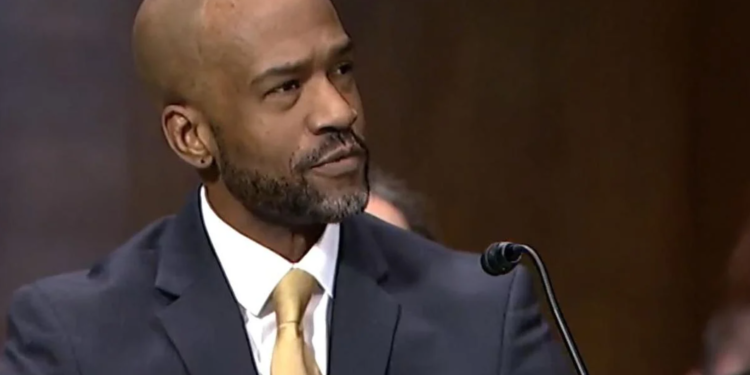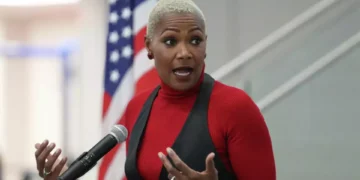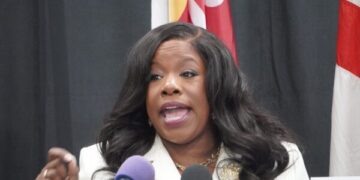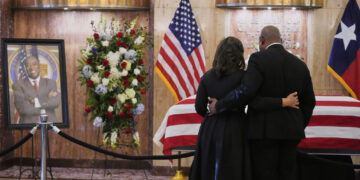April 7, 2025 Story by: Editor
A federal judge has reaffirmed his earlier decision that a group of civic and voting rights organizations lacked the legal standing to challenge the timing of Colorado Springs’ municipal elections.
U.S. District Court Judge S. Kato Crews upheld his previous ruling from last summer, which declined to weigh in on whether the city’s tradition of holding municipal elections in odd-numbered years discriminated against voters of color under the Voting Rights Act. Instead, Crews leaned on a recent U.S. Supreme Court ruling to conclude that the plaintiff organizations hadn’t demonstrated an injury simply by allocating resources to local voter outreach efforts.
“The City held its municipal elections in April as early as 1873. The Plaintiff organizations were founded multiple decades (and sometimes over 100 years) later,” Crews wrote. “Meaning the City conducted April elections for numerous years before these organizations existed, and it has continued to hold April elections well after.”
In his ruling, Crews — a Biden appointee — accused the plaintiffs of attempting a “fabrication” of their legal standing and described their arguments as “reckless and untrue.”
The plaintiffs promptly asked the court to reconsider both the ruling and the language used in the opinion.
“Plaintiffs take their ethical obligations seriously and did not intend to mislead the Court,” their attorneys responded in a filing.
The lawsuit, filed in 2022, stemmed from outreach by Harvard’s Election Law Clinic to several civic groups, including Citizens Project, Colorado Latinos Vote, the League of Women Voters of the Pikes Peak Region, and the Black/Latino Leadership Coalition. These groups claimed their efforts to educate and mobilize voters became more burdensome during the city’s April elections, held in odd-numbered years, as opposed to November elections when statewide and federal contests are typically scheduled.
They cited data showing significantly lower turnout among Black and Hispanic voters during April elections, compared to November elections where turnout gaps with white voters narrowed considerably. The plaintiffs argued this effect amounted to voter suppression and urged the court to mandate that Colorado Springs hold elections in November instead.
The city pushed back against the claim, stating: “Plaintiffs do not contend that minority voters face scheduling hurdles in spring elections that white voters do not confront. Plaintiffs instead contend that there is only one right election date — specifically, the first Tuesday after the first Monday in November — and every other day is wrong.”
Judge Crews grounded his opinion in the U.S. Supreme Court’s recent decision in Food and Drug Administration v. Alliance for Hippocratic Medicine. That case involved medical groups opposed to abortion who challenged the FDA’s approval of mifepristone, despite not prescribing the drug themselves. Writing for the Court, Justice Brett M. Kavanaugh noted:
“An organization cannot spend its way into standing simply by expending money to gather information and advocate against the defendant’s action. An organization cannot manufacture its own standing in that way.”
The plaintiffs contended that they had not been given a chance to respond to that ruling before Crews applied it to their case. They also argued that unlike the medical associations in the mifepristone case, they were diverting funds from other projects in order to inform voters about April elections — a burden they said was not self-created.
Still, Colorado Springs maintained that the plaintiffs’ logic was flawed.
“Plaintiffs want all governments (federal, state, and local) to conduct their affairs (i.e., elections) at (concurrent) times when it is most convenient and inexpensive for Plaintiffs to engage the public,” city attorneys stated. “If standing arose from that desire, anyone could spend $2 on speech and sue because $1 would suffice if the government only conducted its affairs in some other way.”
In his March 25 order denying reconsideration, Crews stood by his legal interpretation, saying he has a duty to determine whether plaintiffs have standing. He added that the Supreme Court’s recent decision “did not alter or reverse” the other precedents he relied upon.
However, Crews slightly softened his earlier criticism of the plaintiffs’ legal team. While he previously accused them of making “reckless and untrue” claims, he now acknowledged their efforts to clarify the record.
He wrote that he “understands Plaintiffs take their ethical obligations seriously and the air is now cleared on that issue,” and added that his earlier statement suggesting plaintiffs had “manufactured” their standing “attributes no bad faith on Plaintiffs’ part.”
The case is Citizens Project et al. v. City of Colorado Springs et al.
Source: Colorado Springs Gazette

















